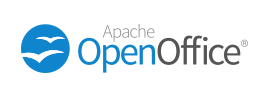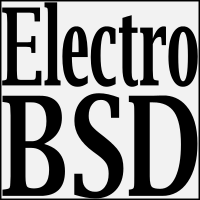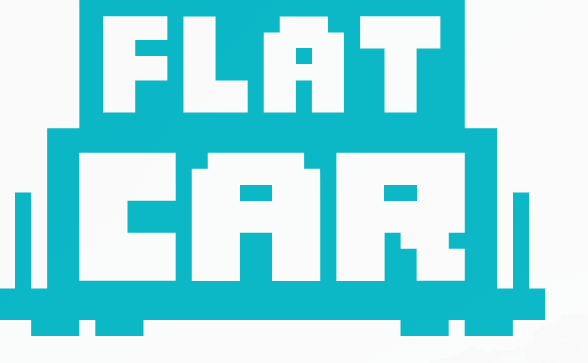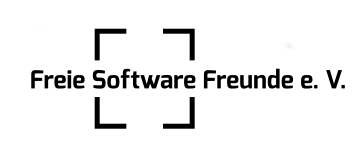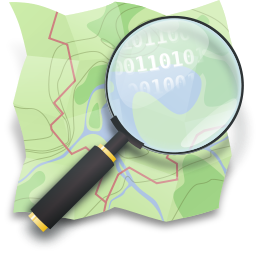AlekSIS
AlekSIS is a free School Information System covering huge parts of school organisation and management, from core personal data over timetables and substitution plans, up to digital class registers. At the same time, it serves as an integration platform for further components of an open source environment for schools by orchestrating learning and communication platforms like Moodle or Matrix/Element.
Bareos
CAcert

CAcert is a community-driven Certificate Authority that issues certificates to the public at large for free. We're issuing server certificates as well as client certificates.
Obviously there will be experienced Assurers at our booth to prove your identity towards CAcert by an ID-card or passport.
This year we'll show how CAcert-client-certificates could enable a password-less login to Wordpress, Drupal or other OpenIDConnect-capable software. This new functionality will be available to every verified CAcert-member in the near future.
CMS Garden e.V.
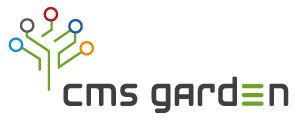
Ever wondered which CMS is best – or the best suitable for you? You have researched and all you ever found out is that every content management system claims to be the best, the most easiest to use, modern and with unlimited possibilities?
Now at CMS Garden your quest comes to an end. All the relevant open source CMSs in one place: compare and decide. You are very welcome to improve our coverage. Brought to you by the communities themselves - welcome to the Garden where all the plants grow peacefully side by side!
Be a part of this fantastic community!
coreboot
Dante e.V. Heidelberg
The German-speaking user association TeX e.V. was founded on April 14, 1989 in Heidelberg.
The purpose of the non-profit association is to support TEX users throughout the German-speaking region.
We support you in selecting and installing TEX /LATEX, help solve user and developer problems, provide you with information about TEX and LATEX and distribute TEX software. DANTE e.V. also supports developments in the areas of TEX, LATEX, ConTEX t, LuaTEX, Metafont, BibTEX /BibLATEX, fonts both personally and financially at a national and international level.
Die Teckids-Gemeinschaft
Questioning technology, making informed decisions, and actively participating – these are important basics (not only) of our digital world. The Teckids community advocates for everyone – especially children and adolescents – to gain competences and rights to critically question technological and digital tools and actively participate in making them.
On Saturday, we show what the participants of the Hack'n'Sun camp accompanying FrOSCon have been making.
ElectroBSD
Flatcar
FOSSASIA
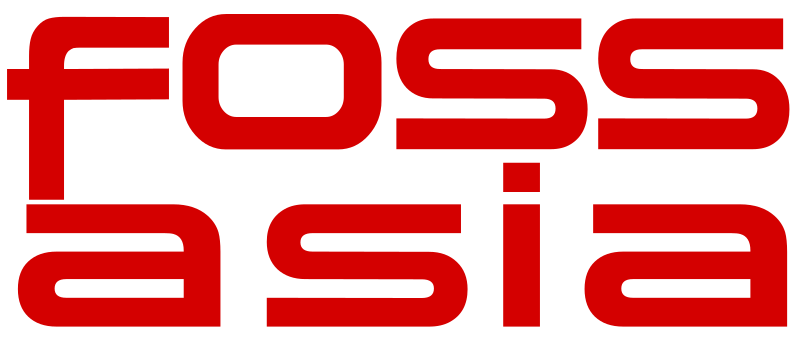
FOSSASIA is an organization dedicated to fostering the development and adoption of open source technologies across Asia and beyond. Founded in 2009, FOSSASIA has grown into a vibrant community of developers, designers, and contributors who collaborate to create innovative solutions that are freely accessible to everyone. The organization's projects span various domains, including software and hardware. FOSSASIA is committed to creating a sustainable ecosystem where open source projects can thrive, offering support through mentorship, resources, and collaborative opportunities. All FOSSASIA projects are publicly accessible https://github.com/fossasia
FOSS on Mobile

A number of projects and distributions are working on bringing Linux and Free Software to mobile devices.
Members of these projects will be presenting devices to try and answer your questions.
Projects:
- Phosh
- PostmarketOS
- Kupfer Linux
- linmob.net / linuxphoneapps.org
Free Software Foundation Europe

The Free Software Foundation Europe is a charity that empowers users to control technology.
Software is deeply involved in all aspects of our lives, and it is important that this technology empowers rather than restricts us. Free Software gives everybody the rights to use, understand, adapt, and share software. These rights help support other fundamental freedoms like freedom of speech, press, and privacy.
Genode OS Framework

The Genode OS framework is an operating-system technology created from scratch. Being a component-based system designed after the principle of least privilege from the very beginning, it breaks with many concepts that we take for granted in traditional operating systems, e.g., the central role of files. Instead, Genode introduces a novel way of composing system scenarios out of building blocks where the building blocks are able to cooperate without ultimately trusting each other. Those building blocks include not only applications but also all classical OS functionalities including kernels, device drivers, file systems, and protocol stacks.
In particular, these principles are showcased by Sculpt OS, a Genode-based general-purpose OS. Since it is not derived from any existing OS, Sculpt re-approaches established concepts like the installation, configuration, and spawning of programs from a new angle. This is reflected by its custom user interface.
Sculpt is used as day-to-day OS by the Genode developers. With various ports of common APIs, we are able to run existing software from POSIX command-line tools to graphical Qt applications. On top of that, commodity OSes can be run in a virtual machine. By reusing Linux driver code in isolated components, Sculpt runs on commodity PC hardware, on the PinePhone and on the MNT Reform. At our booth, we exhibit the current state of Sculpt OS on these devices. We Genode developers are eager to be at FrOScon to spread the ideas and to get in touch with existing and new users.
HSAdmin NG (Genossenschaftliches Cloudmanagement)

The Open Source software HSAdmin NG for cooperative cloud management developed by Hostsharing is focusing on managing members and contact persons, as well as their access rights to objects in the cloud environment. The core, based on Spring Boot and PostgreSQL, verifies access rights and access right delegations before changes to the target state are securely recorded in the database, and a connected configuration management system like Saltstack is tasked with changes to the managed IT systems (current state). The tool set is particularly suitable for organizations looking to offer cloud services on an Open Source basis.
The contextual, role-based rights module is directly implemented in the PostgreSQL database system to ensure secure and scalable filtering of entities. The security model does have Java-based test coverage. For the technical modules, this is done transparently with Updatable Views. Benchmarks confirm the highly scalable performance of the system.
Roadmap:
- The technical module for managing cooperative members and their business shares, as well as debtors and contact persons, has already been developed.
- The core components of HSAdmin NG, the Role-Based Access Control module and the cooperative management module HS Office, are available.
- Development of IaaS and PaaS modules (Items such as CloudServer, ManagedServer, PRIVATE_CLOUD, etc.) as well as a web frontend are in progress.
HSAdmin NG also provides a solid foundation for managing cooperative members, business shares, debtors, and contact persons. External applications can be quickly and efficiently programmed against the HSAdmin API in any programming language.
Keycloak

Keycloak provides Open Source Identity and Access Management.
Add authentication to your applications and secure services with minimum effort.
Leave storing users or authenticating of users to Keycloak, and consume standard-based tokens for OpenID Connect or SAML in your application.
Keycloak is complete with user federation, strong authentication, user management, fine-grained authorization, and more.
LibreOffice - The Document Foundation
microG
Neuropil - Cyber Security Mesh

We are Nuts about Security - Our Neuropil Cyber Security Mesh at frOSCon
We all have it in us: neuropil, the grey matter in our brains - the wires that connect cells and make our brain work efficiently. Just the same neuropil® messaging layer is an open-source solution that ensures the stable communication of machines and applications. It is unique because it safeguards the secure exchange of data between IoT devices in a dynamic, decentralised and fully-automated way. We like to think of it as the social media network for machines because through its decentralised network any party can be reached, even if there is not a direct connection.
The neuropil® cyber security mesh guarantees data quality, data transparency and data sovereignty of users, companies and organisations whilst it also reduces IT costs, maximises availability and increases failure safety. We developed neuropil® cyber security mesh specifically, as a secure IoT is an inevitable precondition for enterprises in gaining future competitive advantages in the value chain.
Neuropil® cyber security mesh includes:
- automated discovery of data channels across enterprises
- asymmetric end-to-end encryption between the participating systems
- protection of IoT devices regarding excessive payloads
- high scalability without requiring central infrastructure
- attribute based access-control to authorise data channels
- centralised governance, but decentralised messaging
Our vision is the SITh (Secure Internet of Things). Neuropil provides the humans behind the things with user-friendly, secure and free privacy.
https://www.neuropil.org
openHAB

The open Home Automation Bus (openHAB, pronounced ˈəʊpənˈhæb) is an open source, technology agnostic home automation platform which runs as the center of your smart home!
Some of openHAB's strengths are:
Its ability to integrate a multitude of other devices and systems. openHAB includes other home automation systems, (smart) devices and other technologies into a single solution
To provide a uniform user interface and a common approach to automation rules across the entire system, regardless of the number of manufacturers and sub-systems involved
Giving you the most flexible tool available to make almost any home automation wish come true; if you can think it, odds are that you can implement it with openHAB.
OpenStreetMap
openSUSE Community
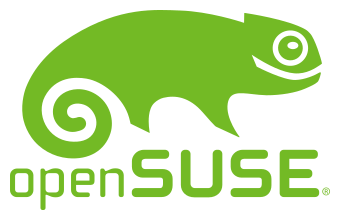
Whether you want new innovations to be available quickly or prefer to rely on a proven, stable foundation, openSUSE has a suitable solution for everyone.
With Tumbleweed as a rolling release, you'll always be up-to-date and experience the latest developments. Leap offers a reliable foundation with long-term support, perfect for projects that rely on long-term support. With MicroOS as an immutable basis, as a platform for future solutions.
The openSUSE community offers powerful tools and a huge selection of community-maintained software. Here you can contribute your skills and work together with others on exciting projects - according to your own interests and strengths.
Privoxy
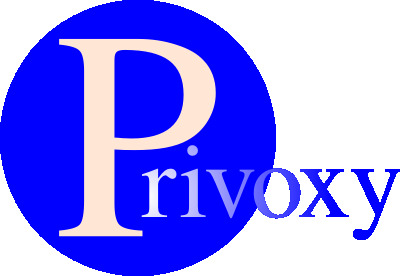
Privoxy is a non-caching web proxy with advanced filtering
capabilities for enhancing privacy, modifying web page data and HTTP
headers, controlling access, and removing ads and other obnoxious
Internet junk. Privoxy has a flexible configuration and can be
customized to suit individual needs and tastes. It has application for
both stand-alone systems and multi-user networks.
Privoxy is Free Software and licensed under the GNU GPLv2 or later.
Privoxy is an associated project of Software in the Public Interest (SPI).
Qubes OS
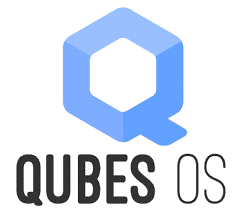
Qubes OS is a free and open-source, security-oriented operating system for single-user desktop computing.
At our booth we're presenting the latest release not only on a 12-year-old x230 using Heads as a Bios-replacement, we answer questions regarding Qubes and show some solutions or workarounds, if there is a more complex configuration needed.
Ubuntu + Ubuntu Touch

The Ubuntu project settled its way so that Linux can be more accessible to a bigger mass. And it should never mind how much knowledge or handicaps are available. Everybody should be able to use the computer as support for different tasks or spending his free time.
The Ubuntu project is not only concerned with keeping the operation of a computer as simple as possible, but also with making access to the community and participation in the project possible for everyone in the simplest way possible.
Ubuntu is not only available on the PC, server or laptop, but also on the smartphone, tablet, Raspi, etc. With Ubuntu Touch, a free alternative operating system has been made possible on smartphones.
Ubuntu turns 20 this year.
XMPP
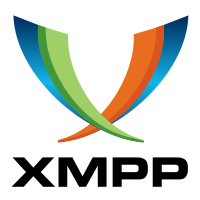
Extensible Messaging and Presence Protocol (XMPP, originally named Jabber) is an open communication protocol designed for instant messaging (IM), presence information, and contact list maintenance. Based on XML, it enables the near-real-time exchange of structured data between two or more network entities. Designed to be extensible, the protocol offers a multitude of applications beyond traditional IM in the broader realm of message-oriented middleware, including signalling for VoIP, video, file transfer, gaming and other uses.
CC-BY-SA https://en.wikipedia.org/wiki/XMPP
